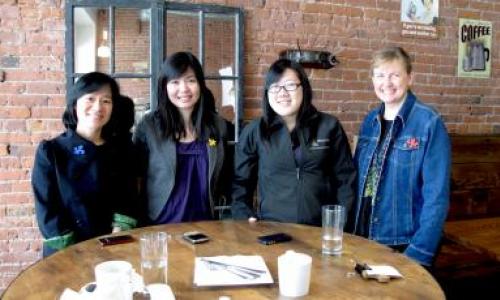
Now that you have decided to pursue a designation as a Chartered Accountant (CA), you need to think about the best route to take to achieve this goal. It is important to remember it is a long process and requires a great amount of dedication. The basic requirements to achieve your designation include:
-
Obtaining your post secondary degree,
-
Preparing for and passing the Uniform Evaluation (UFE), and
-
Completing two and a half years of work experience.
Based on my experience as an accounting co-op student, I believe that the Co-operative Program is an excellent first step in your career as a CA and is a valuable asset in meeting the designation requirements.
Experience Requirements
To obtain your CA designation you must complete two and half years of work experience while obtaining 2500 hours of chargeable work. Included in these 2500 hours is a minimum of 1250 hours of assurance related work, half of which must be audit work, and a minimum of 100 hours of tax related work.
As a co-op student, I completed four co-op terms with Ernst & Young LLP (EY), including two busy seasons; this provided me with a more accurate understanding of the demands of a career as a CA. Furthermore, I was able to complete one year towards the total time frame requirement necessary to achieve my designation. I was also able to complete a substantial portion of my hourly experience requirements. The majority of my time with EY was spent working on audits, especially those of real estate clients.
Over the course of all my co-op terms, I was able to fully meet the requirements for assurance and audit hours. During my second co-op term in the spring of 2010, I also had the opportunity to work in EY’s Media and Entertainment division, preparing corporate tax returns for production companies. Through this, I was able to complete two thirds of the total tax hour requirement. Cumulatively, I was able to complete almost three quarters of my total hour requirements. By completing the standard three co-op terms, you can easily complete up to one third of the two and a half years requirement and up to half of the total hours requirements. Another advantage of the co-op program is that, as a CA student, you are able to get a head start on their UFE preparation courses.
Uniform Evaluation (UFE) Preparation
Prior to writing the UFE, CA students are required to successfully complete a UFE simulation facilitated by the CA School of Business (CASB). To prepare for this, CA students will choose one of two methods. The first is to complete a Masters degree in accounting. This allows CA students to prepare in a classroom setting; however, this route does not allow students to work full-time while completing their degree requirements. The second method is for CA students to complete five CASB modules; these modules are completed online and are structured based on the assumption that students are working full-time.
For students who wish to complete the CASB modules instead of a Masters degree, the co-op program provides them with a great advantage; students employed by a CA training firm are able to begin the CASB modules before completing their degree and with only minimum prerequisite courses, which are business writing and tax. The overall CASB process generally takes roughly two years to complete; however, by beginning modules prior to obtaining their degree, some CA students have been able to write the UFE early, even before beginning to work full time. While some CA students may choose to fast track in this manner, being able to begin CASB modules early also provides you with more leeway in terms of when you can take modules and still write the UFE no later than you would have had you completed your degree prior to beginning CASB modules. Another advantage of beginning CASB modules early, as well as obtaining work experience, is that it can be helpful in completing your degree requirements.
Transferability
Both CASB modules and the work performed during co-op terms provide CA students with practical experience and require that they apply concepts introduced during school courses. Having come CASB and work experience completed prior to certain courses, for example assurance courses, provides context and a more practical understanding of concepts than is provided during the course itself, making these concepts easier to understand. Furthermore, the module process, which requires that students submit weekly tasks in memo form, forces students to provide information and make arguments succinctly.
Another emphasis in CASB modules is critical thinking. Tasks regular require that students provide advice on a specific matter; students are expected to show quantitative skill, for example calculating the present values of leasing versus buying equipment, but then they must go beyond this and consider qualitative factors as well in order to make a recommendation. The work performed on co-op terms also requires that students work in teams, regularly communicating with different individuals, including audit team members and the client. Becoming an accounting co-op student and beginning CASB modules can improve your understanding, critical thinking, writing skills and interpersonal skills, which in turn will improve your ability to perform well in your remaining courses.
The path to obtain your designation and the career itself are very demanding and completing one or several co-op terms prior to graduation will help you determine if it is the career for you. If this is the career for you, it allows you to work towards your designation from day one; you will accumulate the days and hours needed to meet the work experience requirements and begin the learning process preparing you for the UFE. Furthermore, the experience gained here will develop and hone skills required to complete your degree and excel in your future career. Overall, the co-op program is an excellent asset for any prospective CA and should be considered as a first step in obtaining your CA designation.
Students interested in a CA Co-op placement should contact Beedie School of Business Co-op.














